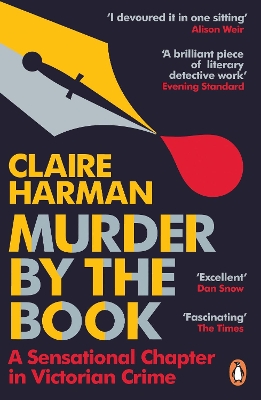Reviewed by MurderByDeath on
Reading updates
- Started reading
- 11 September, 2019: Finished reading
- 11 September, 2019: Reviewed

*Shortlisted for the CWA Gold Dagger for Non-Fiction 2019*
'A fascinating portrait of Victorian London' Observer
'I devoured it in one sitting' Alison Weir
'Excellent' Dan Snow
Early on the morning of 6 May 1840, on an ultra-respectable Mayfair street, the elderly Lord William Russell was discovered in bed with his throat cut so deeply that the head was almost severed.
When Lord William's assassin claimed to having been inspired by a recent sensational novel, it sent shock waves through literary London, and drew both Dickens and Thackeray into the fray. The crime, the investigation, the city's fevered fixation and the mores of the Victorian age are all brilliantly evoked and scrutinized in Claire Harman's spellbinding account of a surprisingly literary crime.
'A scandalous Victorian mystery' Guardian
'Fascinating, entertaining. Harman's tale is never less than rip-roaring' Daily Telegraph
'Vivid and punchy' Spectator